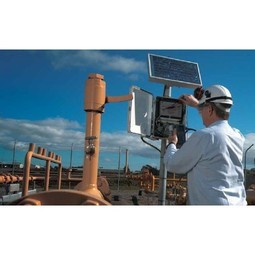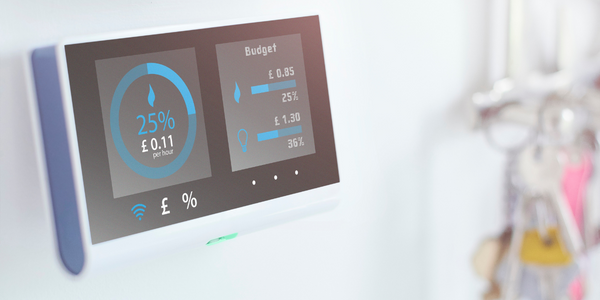公司规模
Large Corporate
地区
- Pacific
国家
- Australia
产品
- Falcon Complete™
- Falcon Discover™
- Falcon Identity Threat Protection™
- Falcon Insight™
- Falcon OverWatch™
- Falcon Prevent™
- Falcon Intelligence™
技术栈
- Endpoint Detection and Response (EDR)
- Managed Threat Hunting
- Next-Generation Antivirus
- Automated Threat Intelligence
实施规模
- Enterprise-wide Deployment
影响指标
- Cost Savings
- Productivity Improvements
- Customer Satisfaction
- Digital Expertise
技术
- 网络安全和隐私 - 端点安全
- 网络安全和隐私 - 网络安全
- 网络安全和隐私 - 安全合规
适用行业
- 公用事业
适用功能
- 商业运营
用例
- 网络安全
- 入侵检测系统
- 远程资产管理
服务
- 网络安全服务
- 系统集成
关于客户
Jemena is a prominent Australian utility company with a rich history dating back to 1837 when Town Gas was used to power street lighting across New South Wales. Today, Jemena owns and operates a diverse portfolio of energy-related assets across northern Australia and Australia's east coast. With an investment of over AU$11.5 billion (USD$8 billion) in major utility infrastructure, the company supplies millions of households and businesses with essential gas and electricity services. Jemena is also committed to increasing the generation and distribution of green energy. However, the extensive energy supply network makes it an enticing target for cyberattacks, prompting the company to enhance its cybersecurity measures. Jemena's operations are critical to Australia's infrastructure, and the company is preparing for new cybersecurity regulations to ensure the protection of its assets.
挑战
Jemena, an Australian utility company, faced several cybersecurity challenges as it prepared for new regulations. The company was concerned about the effectiveness of its existing security solutions, which were slow and manual, consuming valuable time and resources. There was difficulty in obtaining an accurate picture of threats and risks due to a lack of cohesion and integration among various security products and services acquired over time. This resulted in a lack of cross-department cohesion and visibility, with no clear understanding of security-related incidents or the level of risk associated with them. To address these challenges, Jemena appointed Dave Worthington as general manager for digital security and risk to strengthen its defense posture. One of his first actions was to conduct a red team exercise using ethical hackers to test the scope and resilience of existing security measures, which revealed that the current security setup was not fully effective.
解决方案
In response to the cybersecurity challenges and upcoming regulations, Jemena partnered with CrowdStrike to transform its cybersecurity defense and protect its critical infrastructure. After an extensive market review, Jemena selected a series of CrowdStrike Falcon® solutions, including Falcon Complete™, Falcon Discover™, Falcon Identity Threat Protection™, Falcon Insight™, Falcon OverWatch™, Falcon Prevent™, and Falcon Intelligence™. The deployment of CrowdStrike solutions was rapid and efficient, with the entire company covered in just three days. This was a significant improvement compared to previous security products, which required a specialist team and substantial resources for upgrades. CrowdStrike's solutions provided actionable alerts and lowered overhead, simplifying the information provided and making it easy to use. The solutions also had a nominal impact on computer performance, addressing previous concerns about resource consumption. CrowdStrike's enhanced visibility and monitoring capabilities allowed Jemena to detect previously unnoticed vulnerabilities and improve its security posture. The solutions also contributed to cost reductions and improved productivity by providing intuitive and digestible information, enabling Jemena to confidently communicate risk levels to senior management.
运营影响
数量效益

Case Study missing?
Start adding your own!
Register with your work email and create a new case study profile for your business.
相关案例.

Case Study
IoT Solutions for Smart City | Internet of Things Case Study
There were several challenges faced: It is challenging to build an appliance that can withstand a wide range of voltage fluctuations from as low at 90v to as high as 320v. Since the device would be installed in remote locations, its resilience was of paramount importance. The device would have to deal with poor network coverage and have the ability to store and re-transmit data if networks were not available, which is often the case in rural India. The device could store up to 30 days of data.

Case Study
Automation of the Oguz-Gabala-Baku water pipeline, Azerbaijan
The Oguz-Gabala-Baku water pipeline project dates back to plans from the 1970’s. Baku’s growth was historically driven by the booming oil industry and required the import of drinking water from outside of the city. Before the construction of the pipeline, some 60 percent of the city’s households received water for only a few hours daily. After completion of the project, 75 percent of the two million Baku residents are now served around the clock with potable water, based on World Health Organization (WHO) standards. The 262-kilometer pipeline requires no pumping station, but uses the altitude differences between the Caucasian mountains and the capital to supply 432,000 m³/d to the Ceyranbatan water reservoir. To the people of Baku, the pipeline is “the most important project not only in 2010, but of the last 20 years.”

Case Study
GPRS Mobile Network for Smart Metering
Around the world, the electricity supply industry is turning to ‘smart’ meters to lower costs, reduce emissions and improve the management of customer supplies. Smart meters collect detailed consumption information and using this feedback consumers can better understand their energy usage which in turn enables them to modify their consumption to save money and help to cut carbon emissions. A smart meter can be defined in many ways, but generally includes an element of two-way communication between the household meter and the utility provider to efficiently collect detailed energy usage data. Some implementations include consumer feedback beyond the energy bill to include online web data, SMS text messages or an information display in consumers’ premises. Providing a cost-effective, reliable communications mechanism is one of the most challenging aspects of a smart meter implementation. In New Zealand, the utilities have embraced smart metering and designed cost effective ways for it to be implemented. The New Zealand government has encouraged such a move to smart metering by ensuring the energy legislation is consistent with the delivery of benefits to the consumer while allowing innovation in this area. On the ground, AMS is a leader in the deployment of smart metering and associated services. Several of New Zealand’s energy retailers were looking for smart metering services for their residential and small business customers which will eventually account for over 500,000 meters when the multi-year national deployment program is concluded. To respond to these requirements, AMS needed to put together a solution that included data communications between each meter and the central data collection point and the solution proposed by Vodafone satisfied that requirement.

Case Study
NB-IoT connected smart meters to improve gas metering in Shenzhen
Shenzhen Gas has a large fleet of existing gas meters, which are installed in a variety of hard to reach locations, such as indoors and underground, meaning that existing communications networks have struggled to maintain connectivity with all meters. The meter success rate is low, data transmissions are so far unstable and power consumption is too high. Against this background, Shenzhen Gas, China Telecom, Huawei, and Goldcard have jointly trialed NB-IoT gas meters to try and solve some of the challenges that the industry faces with today’s smart gas meters.

Case Study
British Gas Modernizes its Operations with Innovative Smart Metering Deployment
The UK government has mandated that smart meters are rolled out as standard across Great Britain by end of 2020, and this roll-out is estimated to create £14 billion in net benefits to the UK in consumer energy savings and lower energy generation demand, according to the Oxford Economics report, “The Value of Smart Metering to Great Britain.” While smart-metering systems have been deployed in many countries, the roll-out in Great Britain is unique because it is led by energy retailers, who have responsibility for the Electricity and Gas meters. The decision to have a retailer-led roll out was made by DECC (Department of Energy and Climate Change) to improve customer experience and drive consumer benefits. It has also led to some unique system-level requirements to support the unique local regulatory model.

Case Study
OneWireless Enabled Performance Guarantee Test
Tata Power's power generation equipment OEMs (M/s BHEL) is required to provide all of the instrumentation and measurement devices for conducting performance guarantee and performance evaluation tests. M/s BHEL faced a number of specific challenges in conducting PG tests: employing high-accuracy digital communications for instrumentation, shortening setup and dismantling time, reducing hardware required, making portable instrument setup, avoiding temporary cabling work and the material waste costs







